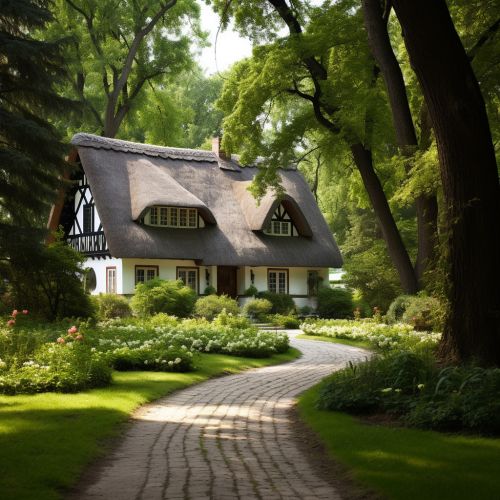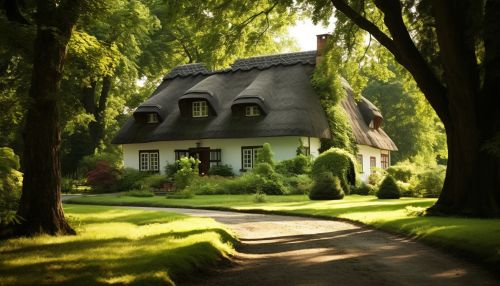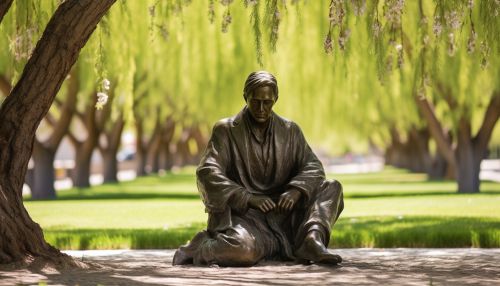Frédéric Chopin
Early Life
Frédéric François Chopin was born on March 1, 1810, in Zelazowa Wola, a small village in the Duchy of Warsaw. His father, Nicolas Chopin, was a Frenchman from Lorraine who had emigrated to Poland in 1787 at the age of sixteen. Nicolas tutored children of the Polish aristocracy, and in 1806 married Justyna Krzyżanowska, a poor relative of the Skarbeks, one of the families for whom he worked. Frédéric was named after his godfather, Frédéric Skarbek, a relative of his mother.


Chopin's family moved to Warsaw in the autumn of 1810. In October 1810, just seven months after Chopin's birth, his family moved to Warsaw, where his father acquired a post teaching French at the Warsaw Lyceum, then housed in the Saxon Palace. Chopin's father played the flute and violin; his mother played the piano and gave lessons to boys in the boarding house that the Chopins kept. Chopin was of slight build, and even in early childhood was prone to illnesses.
Chopin may have had some piano instruction from his mother, but his first professional music tutor, from 1816 to 1821, was the Czech pianist Wojciech Żywny. His elder sister Ludwika also took lessons from Żywny, and occasionally played duets with her brother. It quickly became apparent that he was a child prodigy. By the age of seven Fryderyk had begun giving public concerts, and in 1817 he composed two Polonaises, in G minor and B-flat major.
Musical Education and Career
At the age of eight, Chopin was already recognized as a child prodigy. He performed in elegant salons and began to receive professional music lessons from the renowned pianist, Wojciech Zywny. Despite being less than half Zywny's age, Chopin was soon able to surpass his teacher's skills. He was later mentored by the Polish composer Joseph Elsner, who was the director of the Warsaw Conservatory. Under Elsner's guidance, Chopin honed his skills and developed his unique musical style.


In 1829, Chopin performed his own compositions in Vienna. This was his first exposure to the international music scene, and his performances were met with critical acclaim. He returned to Poland but left again in 1830, just before the outbreak of the November Uprising. He would never return to his homeland again.
Chopin settled in Paris, which was home to a large Polish expatriate community. He made a comfortable living as a composer and piano teacher, while giving few public performances. A great part of his income came from teaching, for which he was in high demand. Some of his students were daughters of wealthy families, who helped him establish connections with the Parisian upper class.
Chopin's music for the piano combined a unique rhythmic sense (particularly his use of rubato), frequent use of chromaticism, and counterpoint. This mixture produces a particularly fragile sound in the melody and the harmony, which are nonetheless underpinned by solid and interesting harmonic techniques. He took the new salon genre of the nocturne, invented by the Irish composer John Field, to a deeper level of sophistication, and endowed popular dance forms, such as the Polonaise and the Mazurka, with a greater range of melody and expression.
Personal Life and Relationships
Chopin's romantic life was marked by his relationship with the French writer Amantine Dupin, better known by her pseudonym, George Sand. Their affair began in 1838 and ended in 1847. Sand was six years older than Chopin. Their relationship was marked by regular conflict, but she was a strong support to him in his bouts of illness.
Chopin's health declined rapidly towards the end of his life. He suffered from tuberculosis, and his final years were marked by debilitating illness. He died on October 17, 1849, at the age of 39. His body was buried in Père Lachaise Cemetery in Paris, but at his own request, his heart was removed and interred in a pillar in the Holy Cross Church in Warsaw.
Legacy
Chopin's music remains very popular and is regularly performed, recorded and broadcast worldwide. He is often cited as one of the mainstays of Romanticism in nineteenth-century classical music. His works are masterpieces and a significant part of the standard concert repertoire. He has a star on the Hollywood Walk of Fame and a museum dedicated to him in Warsaw.


